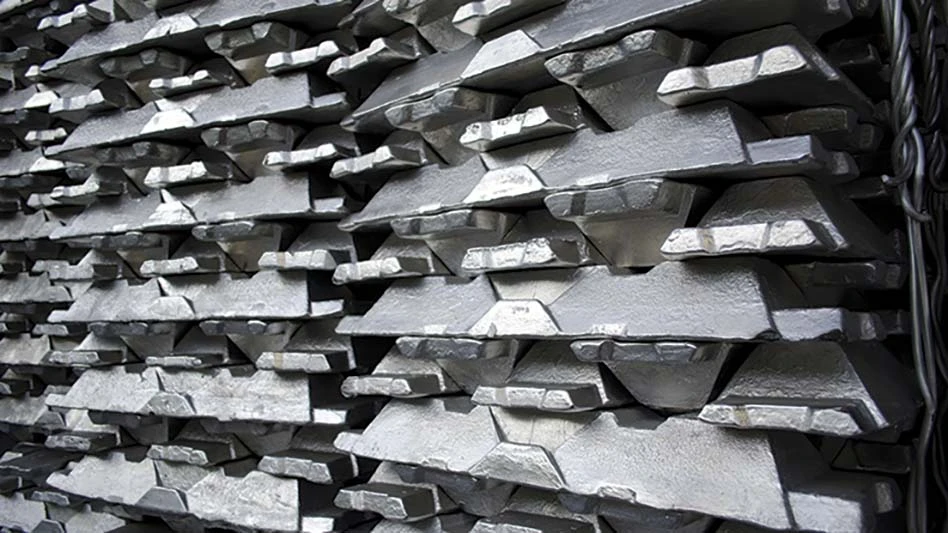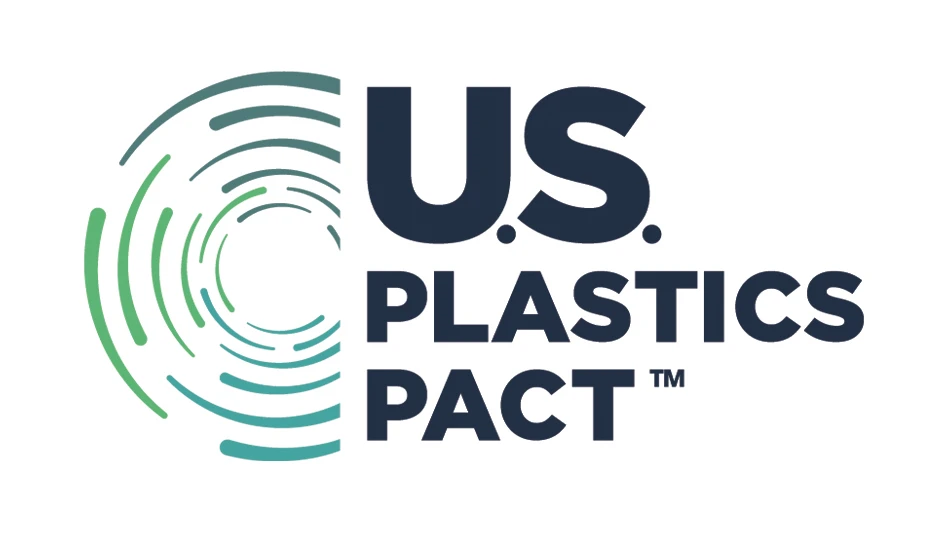Due to the terrorist attack in New York City and Washington, D.C., the NRC has postponed its recycling conference from the end of September to January  13-16. Stay tuned for more information on the NRC Congress.
13-16. Stay tuned for more information on the NRC Congress.
The National Recycling Coalition (NRC), Alexandria, Va., will gather in Seattle on September 30 for its 20th Annual Congress. Members of the coalition of recycling associations and companies from throughout the U.S. will have several issues to discuss, including the future of municipal collection programs and the prospects for end markets for recyclables. Recycling Today senior editor Dan Sandoval has asked NRC executive director Dr. Will Ferretti for some of his thoughts on issues facing recyclers as they head to the 20th NRC Congress.
Q. What are some of the most important issues facing NRC member organizations and companies?
A. I think the biggest challenge facing recycling is how are we going to move recycling to the next level. We have seen from EPA numbers that the recycling growth rates have remained slow—almost flat—for about three or four years, hovering around a 28% recovery rate nationwide. The challenge is how we move that rate to a higher level. That is the primary challenge we are confronted with from a simple numbers standpoint.
From a philosophical standpoint the other challenge is how we make the case for recycling in this new century. There is a general perception that recycling was a fix to the solid waste crisis of the late ‘80s and early ‘90s; that it has been satisfied. But recycling makes larger contributions to overall quality of life, and we need to be able to move on to that plane and argue that case articulately.
Q. Is the NRC sufficiently funded and staffed to help recyclers face those issues?
A. Our funding comes from our members and organizations that sponsor the work that we do. I don’t think you will find any non-profit that would say it is sufficiently funded. There are always demands being placed on us to do more with the few resources we have. We are doing the best that we can with the resources we are endowed with and trying to satisfy the very significant demands for services and actions our members are placing upon us.
Q. What strategies, if any, is NRC undertaking to stabilize or increase membership?
A. We have done a pretty good job of that. Our membership has increased by at least 50% since I came on board just about five years ago. Unlike other organizations, we have not stagnated. We have been able to increase our growth by making the case as an organization that we are relevant to the recycling community across the country. We provide an important voice, an advocacy voice for the recycling community as well as providing an important resource to help recycling professionals and recycling advocates hone their skills and improve their own efforts to raise recycling performance around the country.
Q. Are there possibilities to cooperate with other national associations?
A. Not only possibilities but also actualities. A large number of projects that we undertake are done in collaboration with other associations located here in the Washington area. We will continue to be involved.
Q. What are some of the recurring themes and topics that will be presented in Seattle?
A. A big theme we will look at is the whole emergence of the concept of stewardship and how businesses, governments and NGOs [non-governmental organizations] collaborate together on creating strategies for the proper end-of-life [handling of] products so that they are moved into productive reuse or recycling or remanufacturing streams.
We are going to have a number of sessions on stewardship from a policy standpoint. We will have updates on some of the major stewardship initiatives that are going on around the country. For example, the electronics industry and carpet recycling and recovery are among the big themes that are going on. We’ll be featuring companies that have made a significant corporate commitment to environmental stewardship across the whole range of environmental parameters, not only recycling and waste prevention, but across other parameters. We’re having them speak to our members about some of the challenges that they face in executing those kinds of corporate environmental stewardship strategies. We’ll be soliciting input and feedback from our attendees.
We also will address some of the nuts and bolts of recycling. Because clearly recycling’s progress will be dependent to some degree on how efficient and effective recycling program managers are in maintaining if not growing their current programs. There will be educational sessions on raising participation rates; different kinds of techniques to improve participation, updates on markets for the basic commodities collected in many programs. New technologies and developments in systems in terms of collection will also be presented.
It is a combination of looking at avant-garde trends occurring and how the recycling industry plugs in to those, as well as the nuts and bolts on how to sustain and refine our recycling infrastructure.
Q. What should recyclers be excited or enthused about as they head to Seattle to meet with their peers?
A. The thing that I would say that the recycling community should take great satisfaction from and be energized by is that over the last 15 years we have seen a significant investment from both the private sector and public sector in infrastructure to recycle in America today. That infrastructure is not going away. We have a community collection infrastructure in place right now that serves almost 90 percent of the American population. Almost 90 percent of the people having access or the opportunity to recycle through community programs and at the same time industrial America has retrofitted its technology to make use of recycled material collected through those community programs as the inputs to their manufacturing process.
Those two developments are key and fundamental to recycling’s long-term existence and security into the future.
Q. Are there any initiatives addressing either increased collection or establishing end markets that the NRC is spearheading?
A. As I mentioned before some of the sessions that we are going to have are going to focus on new systems, new methods, and new techniques for increasing collection. These sessions are illustrative of one of the major resource areas that we have been working on at the NRC over the past year and a half. Is to create a clearinghouse for recycling managers on emerging practices, emerging technologies on recycling collection. That clearly is an ongoing focus in terms of resource development and technical assistance we are making available to members in terms of market development.
Some of the areas we are involved in right now are focusing on are these stewardship initiatives. Most significantly in terms of our involvement is this whole initiative involving on electronic product stewardship. How working with OEMs, state governments and the private sector recycling community we can create a recovery and recycling infrastructure that ensures end of life electronics are not going to find their way into disposal streams rather they will find their way into reuse, recycling and remanufacturing streams.
Q. Will the NRC continue to take positions on broader environmental issues not necessarily directly related to recycling?
A. I don’t believe NRC has ever taken positions on broader issues unless they are specifically related to recycling. Our mission is to focus on waste prevention and recycling and our advocacy message will always be focused there.
Q. How long have you now been with the NRC, and what are you looking forward to helping the NRC accomplish in the future?
A. I have been here, as of October, five years. My goal is to establish NRC as a national resource for the recycling community to provide those kinds of technical assistance programs described earlier and to be seen as the national voice for recycling and for the recycling community on policy issues, public education issues. It is also to raise the profile of recycling and to maintain its position as a significant factor in our quality of life.
Q. What is the most pressing issue right now for the recycling industry?
A. I would say it is two fold. It is continuing to refine the infrastructure in the recycling system that we have today – improving the economics, improving the technology, growing the market opportunity for the commodities already being collected and being contemplated to be collected.
The other challenge is a more sublime one. How do we position recycling in the context of larger environmental and economic issues by moving it away from simply a fix for the solid waste crisis that has passed us?
Recycling makes clear contributions to conservation of energy and natural resources, to the reduction of greenhouse gases, and it is a significant source of jobs and business development. That is the playing field where we need to shift our argument and our advocacy. How we do that will be the next challenge that we will all be focusing on and clearly what we already are focusing on it here at the NRC in terms of how we make those points and how we carry that message.

Explore the September 2001 Issue
Check out more from this issue and find your next story to read.
Latest from Recycling Today
- IWS' newest MRF is part of its broader strategy to modernize waste management infrastructure
- PCA reports profitable Q1
- British Steel mill subject of UK government intervention
- NRC seeks speakers for October event
- LME identifies Hong Kong warehouses
- Greenville, Mississippi, launches aluminum can recycling program
- Cotton Lives On kicks off 2025 recycling activities
- Georgia-Pacific names president of corrugated business





